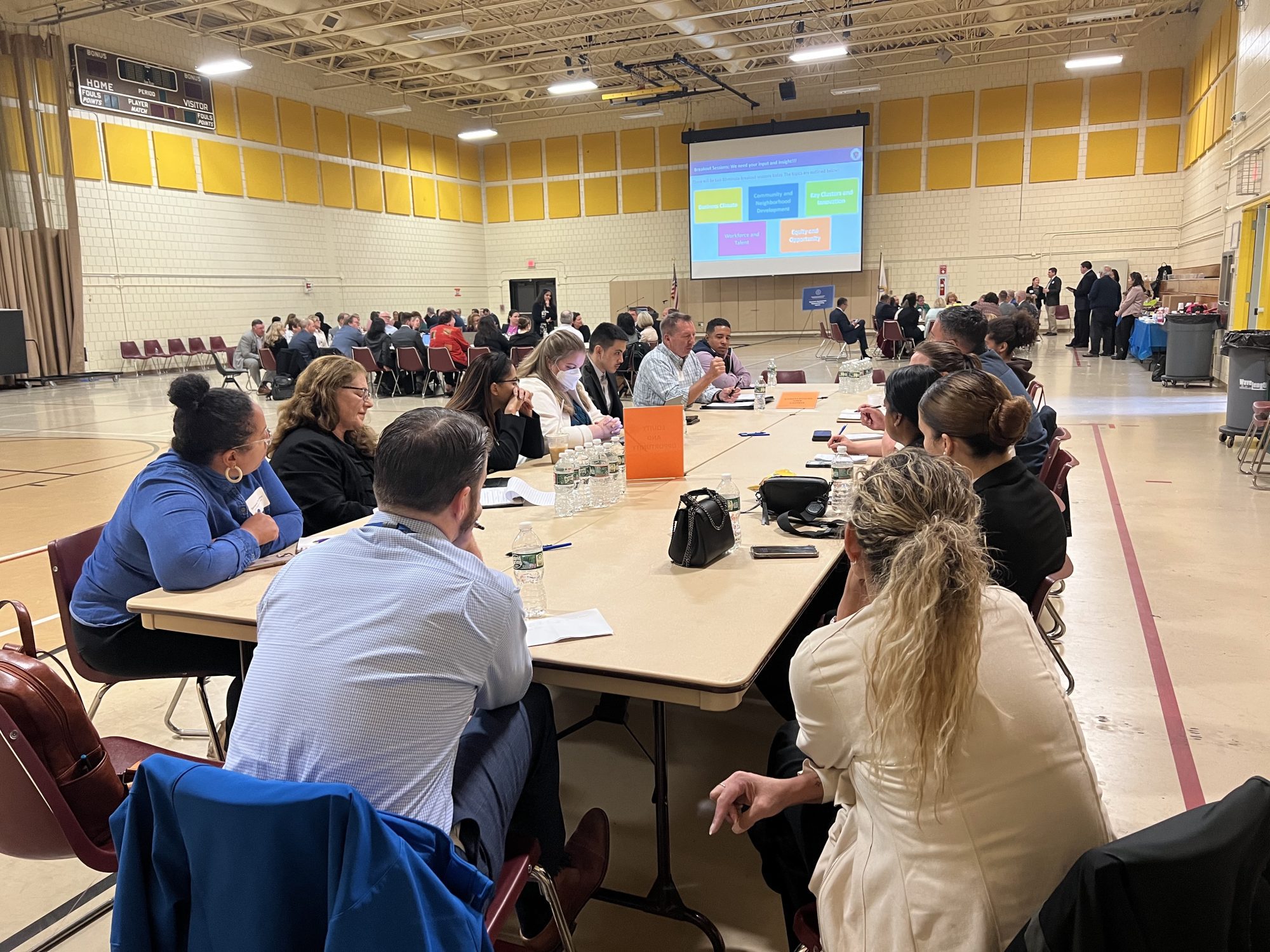LYNN — Inadequate public transportation, rising housing costs, and lack of affordable childcare are just a few of the issues impacting residents of Massachusetts, according to regional leaders and business owners at the Northeast Massachusetts Regional Economic Development Planning Session in Lynn on Monday.
Every four years, the Economic Development Planning Council comes up with a plan to “grow” and “strengthen” the Massachusetts economy, Economic Development Secretary Yvonne Hao said.
“By the end of this calendar year, we’re going to deliver a formal written economic plan to the governor and the legislature, and then really the ideas of how we’re going to bring it to life,” Hao said.
Regional sessions are one of the ways that help create the plan, she said. The session at North Shore Community College on Monday was the fourth of nine.
“They’ve been very well-attended,” Hao said. “I’ve been honestly so happily surprised that we’ve gotten people to give up two hours on a weekday to come to these sessions and not only [do] they come, they come with so many ideas and so much passion and energy.”
The event began with a presentation from the Economic Development Planning Council and then went into two rounds of breakout sessions. The breakout sessions were each divided into the topics of business climate, community and neighborhood development, key clusters and innovation, workforce and talent, and equity and opportunity, with a dedicated table for each topic.
Attendees included elected officials, public-safety officials, small and large business owners, nonprofit directors, and more.
When Laura Swanson, the executive director of North Shore Alliance for Economic Development, was at the business-climate table, she said they talked about the challenges businesses are currently facing.
“Certainly businesses are talking more about the affordable-housing component and how that’s impacting their employees and their ability to retain or recruit employees,” Swanson said.
Childcare and eldercare is a topic that she brought up to the table.
“What are those resources and what are the impacts that it’s certainly having on the workforce… Childcare in terms of affordability, but also in terms of facilities and services to be able to do that,” Swanson said.
Consumer Affairs and Business Regulation Undersecretary Layla D’Emilia was the moderator for the workforce and talent table. Some of the main topics she heard in the first breakout session was transportation, childcare, and affordable housing.
“Transportation is an issue for just workers to get to work. Childcare, when they get a job, they don’t have childcare or it’s really difficult to live in the city that they’re working in,” D’Emilia said. “Really similar things we’re hearing around the state around transportation, housing, and childcare issues.”
The council will hold five more planning sessions throughout the state.
“So already from those other sessions, there’s a whole list of different ideas that people have,” Hao said. “We’re going to do all nine of them, and then sort them by category, and then figure out how we prioritize and bake them into the plan.”

